Tips for Coping with Winter’s Chill
0 Comments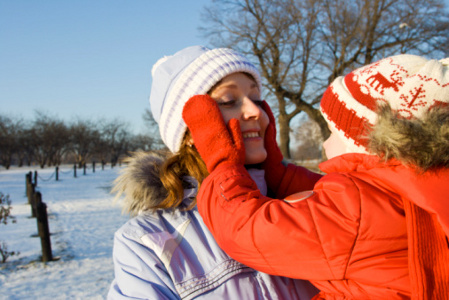
Protect Yourself
The extreme cold temperature of winter creates dangerous situations that can lead to health emergencies. Hypothermia and frostbite are the most common cold-related health conditions. Cold temperatures cause increased strain on the heart. Here are tips for protecting yourself and your family against winter’s brutal chill. Photo: Getty Images

Prevent Hypothermia
Hypothermia is a medical emergency. When your body temperature drops below 95 degrees Fahrenheit, your heart, nervous system and other vital organs stop functioning normally. Untreated hypothermia leads to system failure and death. Exposure to cold temperatures or immersion in a cold body of water causes hypothermia. Prevent hypothermia by wearing protective warm clothing, such as hats, mittens, coats and scarves, avoid overexertion, dress in layers and stay as dry as possible. Also get out of wet clothing as quickly as possible. Photo: Getty Images
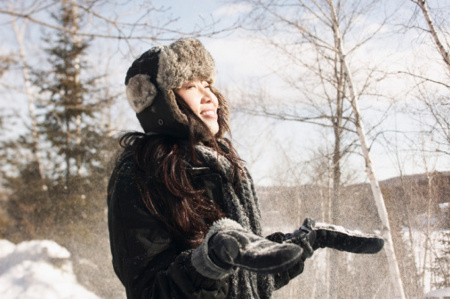
Prevent Frostbite
Frostbite is injury to body tissue caused by freezing. In some cases, the damage is permanent and requires amputation. Prolonged exposure of any part of your body to cold temperatures leads to symptoms of tingling followed by numbness and a change in skin color from red to white or a grayish yellow tone to black. Prevent frostbite by wearing mittens instead of gloves, wind-proof, water-proof and layered clothing, two pairs of socks, a hat and scarf when in situations of prolonged exposure to cold and windy conditions. Avoid tight fitting clothes and boots which restrict circulation. Poor circulation contributes to frostbite. Photo: Getty Images
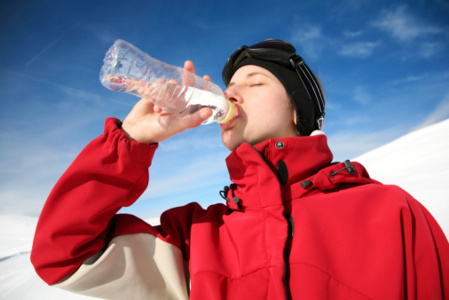
Keep Hydrated
Keeping hydrated during the cold winter months is very important. Winter air is drier than summer air. Heating systems lead to increased dryness in indoor environments. Stay hydrated by drinking at least eight glasses of water each day, carry a water bottle with you when you are away from home or office and limit your intake of caffeine, alcohol and salty foods. Dehydration weakens your immune system making you more susceptible to influenza, viruses and colds. Keeping well hydrated prevents dry, itchy skin, chapped lips and nose bleeds. Photo: Getty Images

Avoid Overexertion
Cold temperature puts a strain on your heart. Your body works harder to stay warm. Any one diagnosed with high blood pressure or heart disease should consult his physician regarding restrictions for shoveling snow or engaging in strenuous outdoor activities. Photo: Getty Images

Avoid Carbon Monoxide Poisoning
Each year, hundreds of people die while thousands are treated for accidental carbon monoxide poisoning. The odorless, colorless gas is found in all combustible fumes, such as the exhaust emissions from cars, fumes from heating systems and smoke from wood fires. Have your heating system serviced by a qualified technical annually. Do not use portable flameless or catalytic heaters indoors. If you use a fireplace or wood stove as a heating source, have the chimney or flue inspected annually. Install a battery-operated carbon monoxide detector in your home. Check the detector monthly and replace the batteries twice a year. . All gas appliances, including generators, must be properly vented. Never run your vehicle in the garage with the garage door shut. Photo: Getty Images
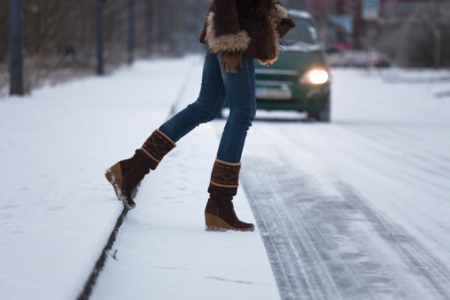
Avoid Ice
Most cold weather injuries result from falls on ice covered side walks, steps and driveways. Keep walkways free of ice by applying chemical deicing compounds, rock salt or sand. Walk slowly and cautiously, taking short flat steps. Wear shoes and boots with slip resistant soles that provide some degree of traction. Avoid wearing high heeled shoes and boots outdoors when conditions are icy. Photo: Getty Images
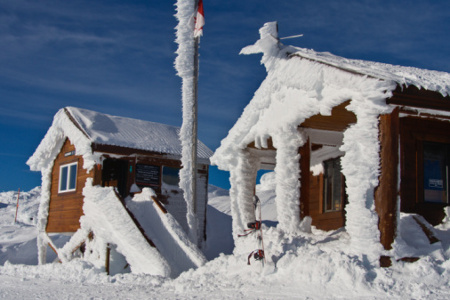
Prepare a Winter Survival Kit
Be prepared for winter’s wrath by assembling a survival kit for your home. Stock up on canned and dried foods, like canned tuna, salmon or sardines, peanut butter, soups, crackers, cereals, pasta, beans and fruits. When winter storms or a bitter cold snap are in the forecast, be certain that you have an adequate supply of the prescribed medications either you or a family member must take daily. In advance of extreme weather, stock up on bottled water or fill clean containers with water. Allow at least one gallon of water per person each day. Sources: CDC: Extreme Cold A Preventative Guide to Promote Your Personal Health and Safety Mayo Clinic: Hypothermia Medline Plus: Frostbite CDC: Carbon Monoxide Poising Article by Maryann Gromisch Photo: Getty Images
Add a CommentComments
There are no comments yet. Be the first one and get the conversation started!